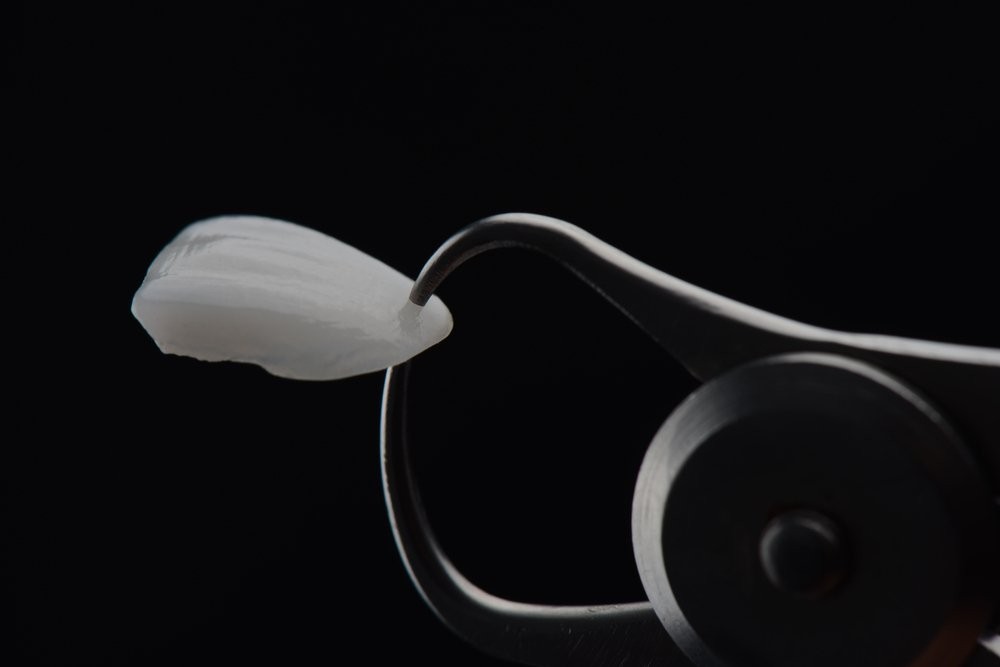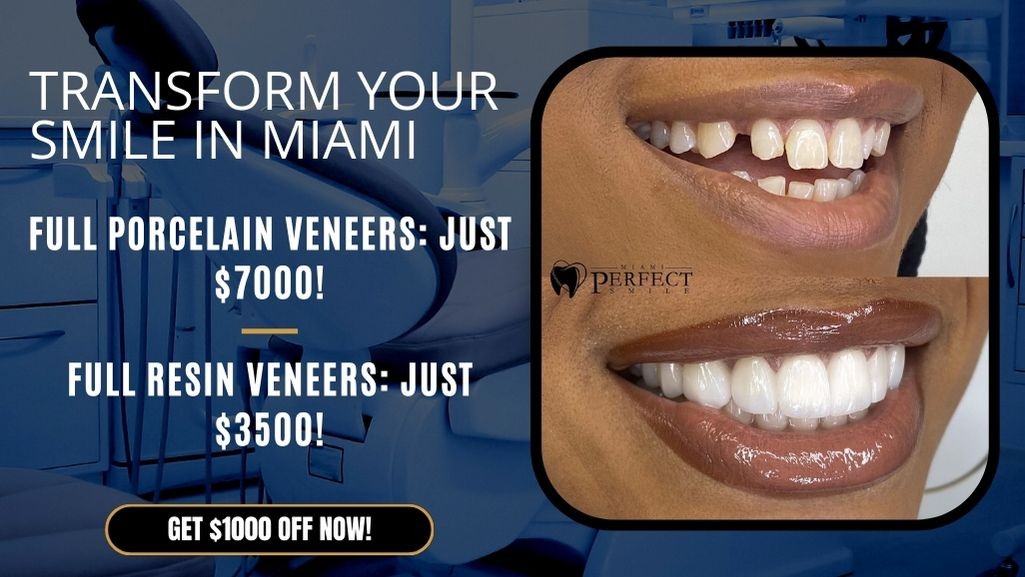Are you wondering how much a full set of veneers costs and looking for ways to achieve a perfect smile transformation? At HOW.EDU.VN, we provide expert insights into the costs associated with dental veneers, helping you make informed decisions about your oral health. Understanding the financial commitment, materials involved, and regional price variations is key to planning your cosmetic dentistry journey.
1. Understanding the Cost of a Full Set of Veneers
The cost of a full set of veneers can vary significantly, typically ranging from $4,500 to $30,000 or more, depending on several factors. According to a study published in the “Journal of Prosthetic Dentistry,” the material used, the dentist’s expertise, and the location of the dental practice are primary determinants of the final cost.
1.1 Factors Influencing the Cost of Veneers
Several key factors can influence the final cost of a full set of veneers.
- Material Type: Porcelain veneers are generally more expensive than composite veneers. Porcelain offers superior aesthetics, durability, and stain resistance.
- Dentist’s Experience: Highly experienced cosmetic dentists often charge more due to their expertise and the quality of their work.
- Geographic Location: Costs vary widely by state and even by city. Metropolitan areas and states with a higher cost of living typically have higher dental fees.
- Number of Veneers: The more teeth that need covering, the higher the overall cost. Full sets typically include 16-20 veneers to cover the visible teeth when smiling.
- Additional Procedures: Any preparatory work, such as teeth whitening, gum contouring, or treatment for underlying dental issues, will add to the total expense.
1.2 Average Costs by Material Type
To give you a clearer picture, here’s a breakdown of the average costs for different types of veneers:
- Composite Veneers: Generally range from $250 to $1,500 per tooth. A full set of composite veneers can cost between $4,000 and $15,000.
- Porcelain Veneers: Typically cost between $925 to $2,500 per tooth. A full set of porcelain veneers can range from $15,000 to $30,000 or more.
- Lumineers: A type of porcelain veneer that is ultra-thin. Lumineers can cost around $800 to $2,000 per tooth, placing a full set in the range of $12,800 to $32,000.
- Zirconia Veneers: Zirconia Veneers are more durable and stain-resistant, costing between $1,200 to $2,500 per tooth, adding up to $19,200 to $40,000 for a full set.
1.3 Veneer Pricing Considerations
There is more involved with veneers than just the cost of the materials. A number of factors go into determining the final price.
- Consultation Fees: The cost of initial consultation and examination.
- Customization: The price to have the veneers custom fitted to your mouth.
- Placement: The fee for bonding the veneer to your tooth, making sure that the alignment is perfect.
2. Detailed Cost Breakdown by State
The cost of veneers can differ significantly based on location. Here is a state-by-state breakdown of average costs for both composite and porcelain veneers:
| State | Composite Veneers | Porcelain Veneers |
|---|---|---|
| Alabama | $5,000 – $8,000 | $10,000 – $20,000 |
| Alaska | $5,000 – $8,000 | $10,000 – $20,000 |
| Arizona | $5,000 – $8,000 | $10,000 – $20,000 |
| Arkansas | $5,000 – $10,000 | $10,000 – $20,000 |
| California | $7,000 – $12,000 | $15,000 – $30,000 |
| Colorado | $5,000 – $10,000 | $12,000 – $20,000 |
| Connecticut | $6,000 – $10,000 | $12,000 – $20,000 |
| Delaware | $6,000 – $10,000 | $12,000 – $20,000 |
| Florida | $4,500 – $8,000 | $7,500 – $15,000 |
| Georgia | $6,000 – $10,000 | $12,000 – $20,000 |
| Hawaii | $6,000 – $10,000 | $12,000 – $20,000 |
| Idaho | $6,000 – $10,000 | $11,000 – $30,000 |
| Illinois | $6,000 – $10,000 | $11,000 – $25,000 |
| Indiana | $6,000 – $10,000 | $11,000 – $30,000 |
| Iowa | $6,000 – $10,000 | $11,000 – $30,000 |
| Kansas | $6,000 – $10,000 | $11,000 – $30,000 |
| Kentucky | $6,000 – $10,000 | $12,000 – $20,000 |
| Louisiana | $6,000 – $10,000 | $12,000 – $30,000 |
| Maine | $6,000 – $10,000 | $12,000 – $30,000 |
| Maryland | $6,000 – $10,000 | $10,000 – $25,000 |
| Massachusetts | $6,000 – $10,000 | $10,000 – $25,000 |
| Michigan | $6,000 – $10,000 | $10,000 – $25,000 |
| Minnesota | $6,000 – $10,000 | $10,000 – $25,000 |
| Mississippi | $6,000 – $10,000 | $10,000 – $25,000 |
| Missouri | $6,000 – $10,000 | $10,000 – $25,000 |
| Montana | $6,000 – $10,000 | $10,000 – $25,000 |
| Nebraska | $6,000 – $10,000 | $12,000 – $30,000 |
| Nevada | $6,000 – $10,000 | $12,000 – $30,000 |
| New Hampshire | $6,000 – $10,000 | $12,000 – $30,000 |
| New Jersey | $6,000 – $10,000 | $12,000 – $30,000 |
| New Mexico | $6,000 – $10,000 | $12,000 – $30,000 |
| New York | $7,000 – $12,000 | $15,000 – $30,000 |



2.1 States With Lower Costs
- Florida: Known for its competitive dental market, Florida offers some of the lowest prices, with full sets of porcelain veneers ranging from $7,500 to $15,000.
- Alabama, Arizona, Arkansas: These states generally have lower living costs, translating to more affordable dental procedures.
2.2 States With Higher Costs
- California and New York: High cost of living and demand for cosmetic dentistry drive up prices, with porcelain veneers ranging from $15,000 to $30,000.
- Other Metropolitan Areas: Major cities like Chicago, Boston, and Seattle also tend to have higher costs due to the concentration of specialized dental practices.
3. Why Consider a Full Set of Veneers?
Full mouth veneers are more than just a cosmetic upgrade; they can significantly enhance your oral health and overall confidence. Here are several compelling reasons to consider this treatment:
- Aesthetic Improvement: Veneers correct discoloration, misalignment, chips, and gaps, providing a uniform and attractive smile.
- Enhanced Confidence: A beautiful smile can boost self-esteem, impacting both personal and professional interactions positively.
- Durability: Porcelain veneers are durable and stain-resistant, offering a long-term solution for cosmetic dental issues.
- Minimal Invasiveness: Compared to other dental procedures like crowns, veneers require minimal removal of the natural tooth structure.
- Quick Transformation: The entire process can often be completed in just a few visits, offering a relatively quick path to a transformed smile.
4. Types of Veneers: Choosing the Right Material
Selecting the right material is crucial for achieving the desired aesthetic and functional outcomes. Here’s a comparison of the most common types of veneers:
4.1 Porcelain Veneers
- Pros:
- Natural Appearance: Porcelain mimics the translucency of natural teeth.
- Stain Resistance: Highly resistant to staining from food and beverages.
- Durability: Can last 10-15 years with proper care.
- Biocompatibility: Porcelain is gentle on gum tissue.
- Cons:
- Higher Cost: More expensive than composite options.
- Irreversible: Requires removal of some tooth enamel.
- Potential for Chipping: Though durable, can chip or crack under significant stress.
4.2 Composite Veneers
- Pros:
- Lower Cost: More affordable than porcelain.
- Repairable: Can be easily repaired if damaged.
- Less Invasive: Often requires less removal of tooth enamel.
- Quicker Procedure: Can typically be completed in one visit.
- Cons:
- Less Durable: Not as long-lasting as porcelain.
- Stain Susceptibility: More prone to staining.
- Less Natural Appearance: Does not mimic the translucency of natural teeth as effectively.
4.3 Lumineers
- Pros:
- Ultra-Thin: Requires minimal to no tooth reduction.
- Painless: Often no need for anesthesia.
- Reversible: Can be removed without permanent damage to the teeth.
- Cons:
- Less Versatile: Best suited for minor cosmetic corrections.
- May Look Bulky: Can appear slightly bulky due to their thinness.
- Cost: Can be similarly priced to traditional porcelain veneers.
4.4 Zirconia Veneers
- Pros:
- Highly Durable: Resistant to chipping and cracking.
- Stain Resistant: Less prone to staining compared to composite veneers.
- Natural Appearance: Can mimic the translucency of natural teeth.
- Cons:
- Higher Cost: More expensive than porcelain.
- Can be Opaque: If not properly shaded, they can look unnatural.
- Complex Placement: Requires experienced dentists for precise fitting.
5. The Veneer Procedure: Step-by-Step
Understanding the full mouth veneer procedure can alleviate anxiety and set realistic expectations. Here’s a detailed step-by-step guide:
5.1 Initial Consultation
- Discussion: Discuss your cosmetic goals and expectations with the dentist.
- Examination: A thorough examination of your teeth and gums to determine suitability.
- Treatment Plan: Development of a customized treatment plan, including material selection and a timeline.
5.2 Preparation
- Tooth Shaping: Removal of a small amount of enamel to accommodate the veneers.
- Local Anesthesia: Administered to minimize discomfort.
- Impressions: Taking impressions of your teeth to create a mold for the veneers.
5.3 Temporary Veneers
- Placement: Temporary veneers are placed to protect your prepared teeth.
- Adjustment: Ensuring the temporary veneers fit comfortably and look natural.
5.4 Veneer Fabrication
- Lab Work: The impressions are sent to a dental lab where the permanent veneers are crafted.
- Material Selection: The lab uses the chosen material (porcelain, composite, etc.) to create custom veneers.
5.5 Final Placement
- Removal: Temporary veneers are removed.
- Cleaning: The teeth are thoroughly cleaned and prepared for bonding.
- Bonding: The dentist uses a special adhesive to bond the permanent veneers to your teeth.
- Adjustment: Final adjustments are made to ensure a comfortable fit and natural appearance.
5.6 Follow-Up
- Check-Up: A follow-up appointment is scheduled to monitor the veneers.
- Oral Hygiene: Instructions on how to care for your veneers to ensure longevity.
6. Paying for Veneers: Financial Options
Investing in a full set of veneers is a significant financial decision. Fortunately, several options can help make the treatment more affordable:
6.1 Dental Insurance
- Coverage: While many dental insurance plans do not cover cosmetic procedures like veneers, some may offer partial coverage if the veneers are medically necessary (e.g., to correct a structural issue).
- Check with Provider: Always verify coverage details with your insurance provider.
6.2 Financing Plans
- Dental Financing Companies: Companies like CareCredit and LendingClub offer financing plans specifically for medical and dental procedures.
- Payment Plans: Many dental practices offer in-house payment plans, allowing you to spread the cost over several months.
6.3 Health Savings Accounts (HSA) and Flexible Spending Accounts (FSA)
- Tax-Advantaged Funds: HSAs and FSAs allow you to use pre-tax dollars for eligible healthcare expenses, including dental procedures.
- Check Eligibility: Ensure that veneers are an eligible expense under your HSA or FSA plan.
6.4 Dental Schools
- Reduced Costs: Dental schools often offer treatments at reduced costs, providing an excellent option for those on a budget.
- Supervised Care: Treatments are performed by dental students under the supervision of experienced instructors.
7. Maintaining Your Veneers: Aftercare Tips
Proper aftercare is essential for extending the lifespan and maintaining the appearance of your veneers. Follow these tips to keep your smile radiant:
7.1 Oral Hygiene Practices
- Brushing: Brush your teeth twice daily with a soft-bristled toothbrush and non-abrasive toothpaste.
- Flossing: Floss daily to remove plaque and debris from between your teeth and along the gum line.
- Mouthwash: Use an antimicrobial mouthwash to kill bacteria and maintain oral health.
7.2 Dietary Considerations
- Avoid Staining Foods: Limit consumption of coffee, tea, red wine, and other staining foods and beverages.
- Limit Hard Foods: Avoid biting directly into hard or crunchy foods that can chip or damage your veneers.
- Chewing Habits: Be mindful of chewing habits that could put excessive pressure on your veneers.
7.3 Protective Measures
- Mouthguards: Wear a mouthguard if you grind your teeth at night or participate in contact sports.
- Regular Check-Ups: Schedule regular dental check-ups and cleanings to monitor the health of your veneers.
7.4 Avoiding Harmful Habits
- Avoid Using Teeth as Tools: Do not use your teeth to open packages or cut objects.
- Quit Smoking: Smoking can stain veneers and contribute to gum disease.
- Limit Alcohol Consumption: Excessive alcohol can weaken the bonding agents used to secure veneers.
8. Alternatives to Full Mouth Veneers
If full mouth veneers are not the right fit for your needs or budget, several alternatives can still help you achieve a beautiful smile:
| Alternatives | Description | Benefits |
|---|---|---|
| Teeth Whitening | Uses bleaching agents to remove stains and brighten teeth. | Non-invasive, cost-effective, can significantly improve the brightness of your smile. |
| Dental Bonding | Applies tooth-colored resin to the surface of teeth to improve appearance. | Less expensive than veneers, can fix minor chips and gaps, reversible. |
| Orthodontic Treatment | Uses braces or clear aligners to straighten teeth. | Corrects misalignments, improves bite function, enhances overall oral health. |
| Dental Crowns | Places a cap over the entire tooth to improve appearance and function. | Provides comprehensive coverage, strengthens weakened teeth, corrects severe damage. |
| Gum Contouring | Removes excess gum tissue to create a balanced smile. | Improves the appearance of gummy smiles, enhances the symmetry of your smile, can be combined with other cosmetic procedures. |
| Invisible Aligners | Uses clear aligners to straighten teeth. | Removable for eating and cleaning, less visible, corrects misalignments. |
9. Why Consult a Professional at HOW.EDU.VN?
Choosing to get a full set of veneers is a big decision, and it’s essential to have expert guidance. At HOW.EDU.VN, we connect you with leading dental professionals who can provide personalized advice and comprehensive treatment plans. Here’s why consulting with our experts is beneficial:
- Expertise: Our network includes highly qualified cosmetic dentists with years of experience in veneer procedures.
- Personalized Advice: We offer tailored recommendations based on your specific needs, budget, and aesthetic goals.
- Comprehensive Assessment: Our experts conduct thorough evaluations to determine the best course of treatment for your oral health.
- Access to Advanced Technology: We utilize the latest dental technologies to ensure precise and effective veneer placement.
- Ongoing Support: We provide continuous support and guidance throughout the entire veneer process, from consultation to aftercare.
Our team of over 100 renowned PhDs worldwide is dedicated to providing expert consultations and customized solutions. We understand the challenges you face in finding reliable, high-quality advice. By connecting with our specialists, you can save time and money while receiving unparalleled expertise.
9.1 Benefits of Expert Consultation
- Accurate Information: Get reliable and up-to-date information on veneer costs, materials, and procedures.
- Customized Treatment Plans: Receive a tailored plan that addresses your specific dental needs and cosmetic goals.
- Financial Guidance: Understand the various financing options available to make veneers more affordable.
- Long-Term Support: Benefit from ongoing support and aftercare advice to ensure the longevity of your veneers.
Don’t let the complexity of cosmetic dentistry hold you back. Trust HOW.EDU.VN to connect you with the experts who can transform your smile and boost your confidence.
10. FAQs About Full Mouth Veneers
Here are some frequently asked questions about full mouth veneers to help you make an informed decision:
10.1 How long do full mouth veneers last?
Porcelain veneers typically last between 10 to 15 years with proper care, while composite veneers may need replacement sooner, usually within 5 to 7 years.
10.2 Are veneers painful to get?
The procedure is generally not painful. Local anesthesia is used during the tooth preparation phase to minimize discomfort. Some patients may experience mild sensitivity after the procedure, which can be managed with over-the-counter pain relievers.
10.3 Can veneers fix severely damaged teeth?
Veneers are best suited for minor to moderate cosmetic issues. Severely damaged teeth may require more comprehensive treatments like crowns or implants.
10.4 Will my insurance cover the cost of veneers?
Most dental insurance plans do not cover cosmetic procedures like veneers. However, it’s always best to check with your insurance provider to confirm your coverage details.
10.5 How do I choose the right veneer provider?
Look for a licensed and experienced cosmetic dentist with a strong portfolio of before-and-after photos. Read reviews and testimonials from previous patients, and choose a provider who offers a comprehensive treatment plan.
10.6 Can I finance my veneer treatment?
Yes, several financing options are available, including dental financing companies, in-house payment plans, and using funds from Health Savings Accounts (HSA) or Flexible Spending Accounts (FSA).
10.7 What are the risks associated with veneers?
Potential risks include increased tooth sensitivity, chipping or cracking of the veneers, and the need for replacement over time. Proper oral hygiene and regular dental check-ups can minimize these risks.
10.8 How do I care for my veneers?
Practice good oral hygiene by brushing twice daily, flossing daily, and using a non-abrasive toothpaste. Avoid hard or crunchy foods, and wear a mouthguard if you grind your teeth at night.
10.9 Can veneers change the shape of my face?
While veneers primarily enhance your smile, they can indirectly affect the appearance of your face by improving the symmetry and proportions of your teeth.
10.10 Are there any non-invasive alternatives to veneers?
Yes, alternatives like teeth whitening and dental bonding are less invasive and can still significantly improve the appearance of your smile.
At HOW.EDU.VN, we understand that navigating the world of dental aesthetics can be overwhelming. That’s why we’re here to provide expert guidance and connect you with the best professionals in the field.
Ready to transform your smile? Contact HOW.EDU.VN today for a consultation and discover how full mouth veneers can enhance your confidence and oral health.
Address: 456 Expertise Plaza, Consult City, CA 90210, United States
WhatsApp: +1 (310) 555-1212
Website: how.edu.vn
Don’t wait—reach out now and take the first step toward achieving the smile of your dreams with the help of our esteemed doctors.